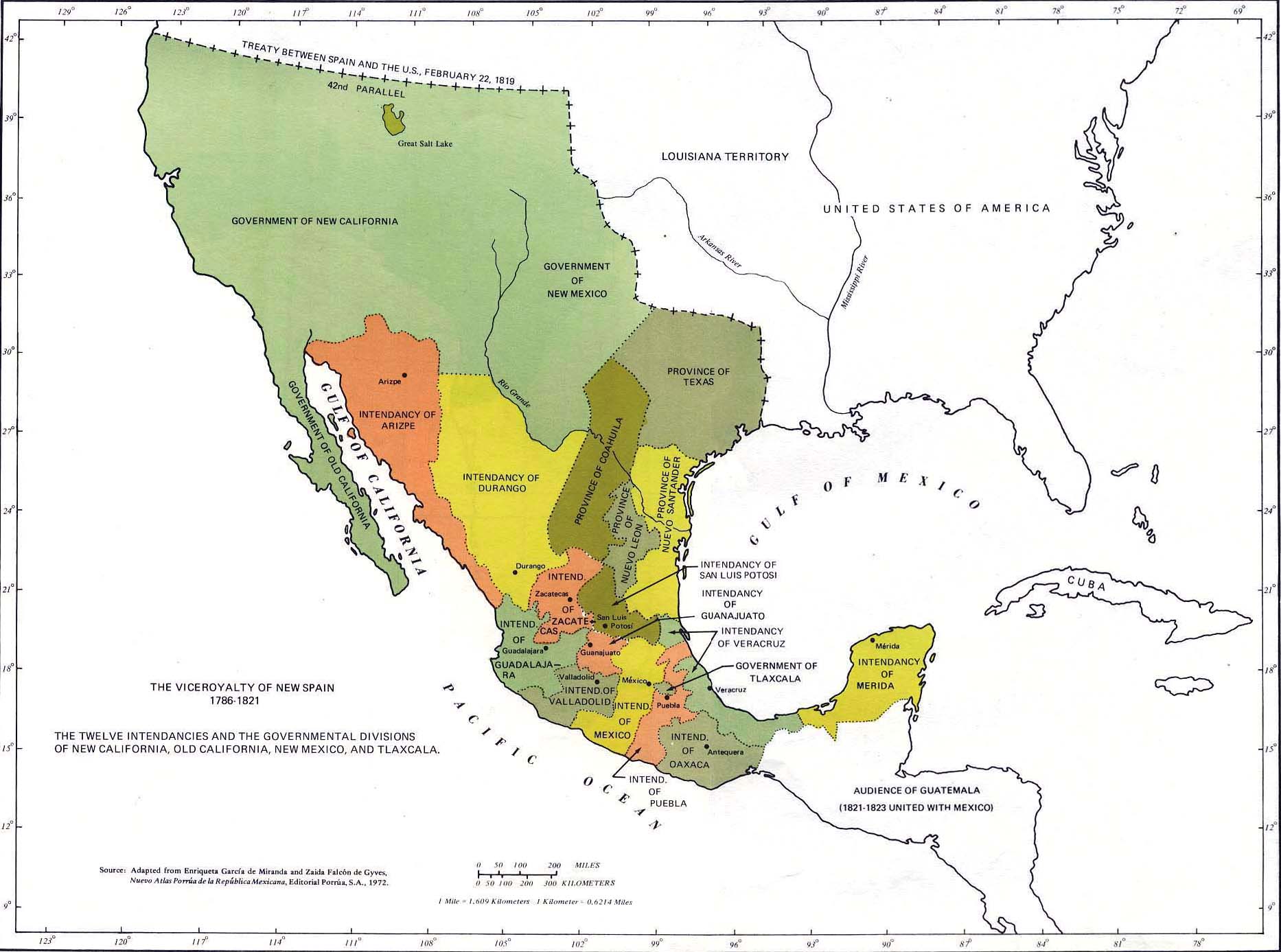
Diversity should be embraced, not feared or scolded.
Arizona news reporter Vanessa Ruiz has been met with criticism, confusion and praise for her use of Spanish words and pronunciations within her newscasts. In Arizona, which was formerly part of Mexico (pre-cession in 1848 and then through the Gadsden Purchase in 1853; see map), many cities, landmarks and people maintain their Hispanic ethnicity. Even the state itself has a Spanish-derived name. Thus, the pronunciation makes sense, right?
Although over 30% of the Arizona population claims to be Hispanic (and obviously with more concentrated regions), Ruiz’s pronunciations have been met with confusion and misunderstanding. The use of Spanish in the public eye has taken a further step into the spotlight in recent months, through Jeb Bush’s use of Spanish to discuss various topics related to immigration, as well as Donald Trump’s push for everyone to “speak English” in the US. However the “bi-lingualness” of these reports make them more accessible to viewers and the general population, as well as paying homage to the region’s ancestry.
Looking at the situation as a to-be Spanish teacher and a promoter of diversity and interculturalism, I believe Ruiz shows us that our heritage, our ethnicities and our diversity should be celebrated, not ridiculed. Viridiana Gonzalez, a bilingual Arizona mother, speaks brilliantly on the topic. She says of Ruiz: “Hey look, she’s not afraid of her heritage.”
And none of us should be. So let’s look at this month as an OPPORTUNITY to truly celebrate- in ways we’re accustomed to or not- Hispanic Heritage.

Este resumen viene del artículo publicado por el New York Times el 3 de septiembre, 2015. Si le gustaría leer el artículo además de este resumen, siga el enlace arriba.
Se debe celebrar la diversidad no se la reta o teme.
Una reportera de Arizona, Vanessa Ruiz, ha enfrentado crítica, confusión y alabanzas por su uso de palabras y pronunciaciones de español en sus reportajes. En Arizona, el cual era parte de México (antes del año 1848 y más todavía 1853; vea el mapa arriba), muchas ciudades, muchos lugares y un gran porcentaje de la gente mantienen su herencia hispana. También el estado “Arizona” (árido-zona) se deriva de un nombre español. Entonces, ¿la pronunciación tiene sentido, no?
Aunque más que 30% de la población de Arizona identifica con el término “hispano” en el último censo, las pronunciaciones de Ruiz todavía han causado confusión para algunos televidentes. El uso de español en áreas públicas ahora está debajo de un ojo atento más que nunca, por el uso de español por parte de Jeb Bush con respeto a temas de inmigración, además del intento por Donald Trump que todos políticos (y la gente en general) habla solamente inglés en los EEUU. Sin embargo, la “bilinguedad” de los reportajes los hace más alcanzables para televidentes y la población, además de ser un homenaje a la herencia cultural de la región.
Ver la situación de la perspectiva de un futuro profesor de español y defensor de la diversidad y el interculturalismo, creo que Ruiz nos muestra que nuestra(s) herencia(s), etnia(s), y diversidad(es) deben ser celebradas, y no ridiculizadas. Vidriana Gonzalez, una bilingüe madre de Arizona, habla de mucha sabiduría sobre el tema. Dice de Ruiz: “Mira,no tiene miedo de su herencia.”
Y no debemos. Entonces veamos este mes como una gran OPORTUNIDAD para celebrar- en maneras de los cuales estamos acostumbrados y de algunas que no- la herencia hispana.
PHOTO SOURCE: http://www.emersonkent.com/map_archive/mexico_1786.htm
"> Holland Public Schools
Holland Public Schools 
This summary comes from an article published by the New York Times September 3, 2015. If you would like to read the article for yourself, check it out here: http://www.nytimes.com/2015/09/04/us/latina-arizona-news-anchor-vanessa-ruiz-spanish-pronunciation.html?smid=fb-nytimes&smtyp=cur&_r=1
Diversity should be embraced, not feared or scolded.
Arizona news reporter Vanessa Ruiz has been met with criticism, confusion and praise for her use of Spanish words and pronunciations within her newscasts. In Arizona, which was formerly part of Mexico (pre-cession in 1848 and then through the Gadsden Purchase in 1853; see map), many cities, landmarks and people maintain their Hispanic ethnicity. Even the state itself has a Spanish-derived name. Thus, the pronunciation makes sense, right?
Although over 30% of the Arizona population claims to be Hispanic (and obviously with more concentrated regions), Ruiz’s pronunciations have been met with confusion and misunderstanding. The use of Spanish in the public eye has taken a further step into the spotlight in recent months, through Jeb Bush’s use of Spanish to discuss various topics related to immigration, as well as Donald Trump’s push for everyone to “speak English” in the US. However the “bi-lingualness” of these reports make them more accessible to viewers and the general population, as well as paying homage to the region’s ancestry.
Looking at the situation as a to-be Spanish teacher and a promoter of diversity and interculturalism, I believe Ruiz shows us that our heritage, our ethnicities and our diversity should be celebrated, not ridiculed. Viridiana Gonzalez, a bilingual Arizona mother, speaks brilliantly on the topic. She says of Ruiz: “Hey look, she’s not afraid of her heritage.”
And none of us should be. So let’s look at this month as an OPPORTUNITY to truly celebrate- in ways we’re accustomed to or not- Hispanic Heritage.

Este resumen viene del artículo publicado por el New York Times el 3 de septiembre, 2015. Si le gustaría leer el artículo además de este resumen, siga el enlace arriba.
Se debe celebrar la diversidad no se la reta o teme.
Una reportera de Arizona, Vanessa Ruiz, ha enfrentado crítica, confusión y alabanzas por su uso de palabras y pronunciaciones de español en sus reportajes. En Arizona, el cual era parte de México (antes del año 1848 y más todavía 1853; vea el mapa arriba), muchas ciudades, muchos lugares y un gran porcentaje de la gente mantienen su herencia hispana. También el estado “Arizona” (árido-zona) se deriva de un nombre español. Entonces, ¿la pronunciación tiene sentido, no?
Aunque más que 30% de la población de Arizona identifica con el término “hispano” en el último censo, las pronunciaciones de Ruiz todavía han causado confusión para algunos televidentes. El uso de español en áreas públicas ahora está debajo de un ojo atento más que nunca, por el uso de español por parte de Jeb Bush con respeto a temas de inmigración, además del intento por Donald Trump que todos políticos (y la gente en general) habla solamente inglés en los EEUU. Sin embargo, la “bilinguedad” de los reportajes los hace más alcanzables para televidentes y la población, además de ser un homenaje a la herencia cultural de la región.
Ver la situación de la perspectiva de un futuro profesor de español y defensor de la diversidad y el interculturalismo, creo que Ruiz nos muestra que nuestra(s) herencia(s), etnia(s), y diversidad(es) deben ser celebradas, y no ridiculizadas. Vidriana Gonzalez, una bilingüe madre de Arizona, habla de mucha sabiduría sobre el tema. Dice de Ruiz: “Mira,no tiene miedo de su herencia.”
Y no debemos. Entonces veamos este mes como una gran OPORTUNIDAD para celebrar- en maneras de los cuales estamos acostumbrados y de algunas que no- la herencia hispana.
PHOTO SOURCE: http://www.emersonkent.com/map_archive/mexico_1786.htm